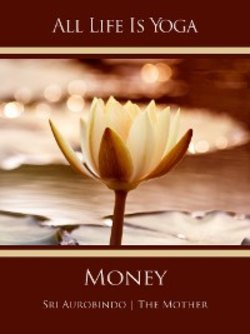Читать книгу All Life Is Yoga: Money - Sri Aurobindo - Страница 9
Chapter 1 Money and Commercialism
ОглавлениеWords of Sri Aurobindo
But if Science has thus prepared us for an age of wider and deeper culture and if in spite of and even partly by its materialism it has rendered impossible the return of the true materialism, that of the barbarian mentality, it has encouraged more or less indirectly both by its attitude to life and its discoveries another kind of barbarism, – for it can be called by no other name, – that of the industrial, the commercial, the economic age which is now progressing to its culmination and its close. This economic barbarism is essentially that of the vital man who mistakes the vital being for the self and accepts its satisfaction as the first aim of life. The characteristic of Life is desire and the instinct of possession. Just as the physical barbarian makes the excellence of the body and the development of physical force, health and prowess his standard and aim, so the vitalistic or economic barbarian makes the satisfaction of wants and desires and the accumulation of possessions his standard and aim. His ideal man is not the cultured or noble or thoughtful or moral or religious, but the successful man. To arrive, to succeed, to produce, to accumulate, to possess is his existence. The accumulation of wealth and more wealth, the adding of possessions to possessions, opulence, show, pleasure, a cumbrous inartistic luxury, a plethora of conveniences, life devoid of beauty and nobility, religion vulgarised or coldly formalised, politics and government turned into a trade and profession, enjoyment itself made a business, this is commercialism. To the natural unredeemed economic man beauty is a thing otiose or a nuisance, art and poetry a frivolity or an ostentation and a means of advertisement. His idea of civilisation is comfort, his idea of morals social respectability, his idea of politics the encouragement of industry, the opening of markets, exploitation and trade following the flag, his idea of religion at best a pietistic formalism or the satisfaction of certain vitalistic emotions. He values education for its utility in fitting a man for success in a competitive or, it may be, a socialised industrial existence, science for the useful inventions and knowledge, the comforts, conveniences, machinery of production with which it arms him, its power for organisation, regulation, stimulus to production. The opulent plutocrat and the successful mammoth capitalist and organiser of industry are the supermen of the commercial age and the true, if often occult rulers of its society.
The essential barbarism of all this is its pursuit of vital success, satisfaction, productiveness, accumulation, possession, enjoyment, comfort, convenience for their own sake. The vital part of the being is an element in the integral human existence as much as the physical part; it has its place but must not exceed its place. A full and well-appointed life is desirable for man living in society, but on condition that it is also a true and beautiful life. Neither the life nor the body exist for their own sake, but as vehicle and instrument of a good higher than their own. They must be subordinated to the superior needs of the mental being, chastened and purified by a greater law of truth, good and beauty before they can take their proper place in the integrality of human perfection. Therefore in a commercial age with its ideal, vulgar and barbarous, of success, vitalistic satisfaction, productiveness and possession the soul of man may linger a while for certain gains and experiences, but cannot permanently rest. If it persisted too long, Life would become clogged and perish of its own plethora or burst in its straining to a gross expansion. Like the too massive Titan it will collapse by its own mass, mole ruet sua.
*
..........
